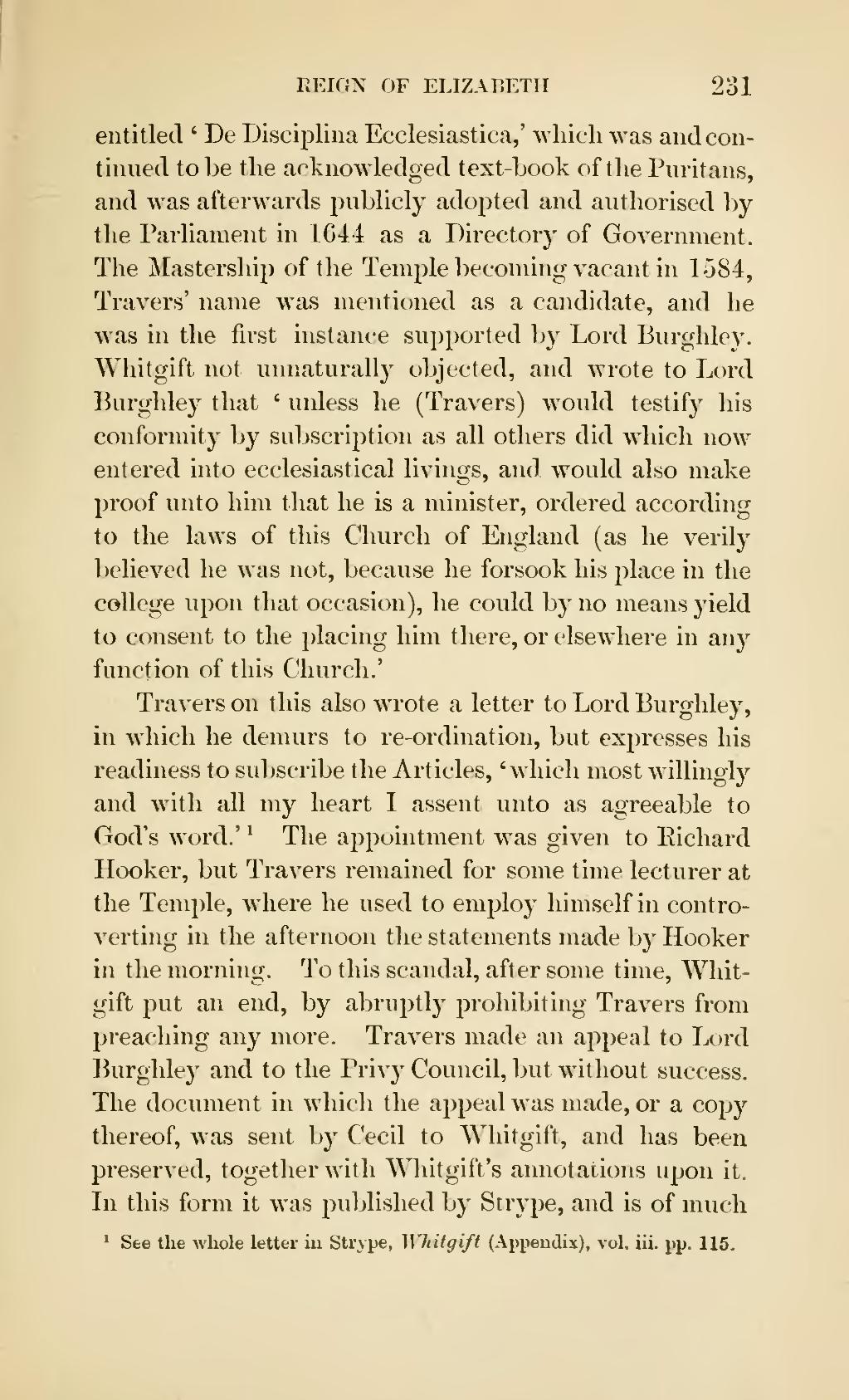entitled 'De Disciplina Ecclesiastica,' which was and continued to be the acknowledged text-book of the Puritans, and was afterwards publicly adopted and authorised by the Parliament in 1644 as a Directory of Government. The Mastership of the Temple becoming vacant in 1584, Travers' name was mentioned as a candidate, and he was in the first instance supported by Lord Burghley. Whitgift not unnaturally objected, and wrote to Lord Burghley that 'unless he (Travers) would testify his conformity by subscription as all others did which now entered into ecclesiastical livings, and would also make proof unto him that he is a minister, ordered according to the laws of this Church of England (as he verily believed he was not, because he forsook his place in the college upon that occasion), he could by no means yield to consent to the placing him there, or elsewhere in any function of this Church.'
Travers on this also wrote a letter to Lord Burghley, in which he demurs to re-ordination, but expresses his readiness to subscribe the Articles, 'which most willingly and with all my heart I assent unto as agreeable to God's word.'[1] The appointment was given to Richard Hooker, but Travers remained for some time lecturer at the Temple, where he used to employ himself in controverting in the afternoon the statements made by Hooker in the morning. To this scandal, after some time, Whitgift put an end, by abruptly prohibiting Travers from preaching any more. Travers made an appeal to Lord ]3urgliley and to the Privy Council, but without success. The document in which the appeal was made, or a copy thereof, was sent by Cecil to Whitgift, and has been preserved, together with Whitgift's annotations upon it. In this form it was published by Strype, and is of much
- ↑ See the whole letter in Strype, Whitgift (Appendix), vol, iii. pp. 115.
